- Home
- Wilkie Collins
Little Novels
Little Novels Read online
Little Novels
Wilkie Collins
The Project Gutenberg EBook of Little Novels, by Wilkie Collins
This eBook is for the use of anyone anywhere at no cost and with
almost no restrictions whatsoever. You may copy it, give it away or
re-use it under the terms of the Project Gutenberg License included
with this eBook or online at www.gutenberg.org
Title: Little Novels
Author: Wilkie Collins
Release Date: October 15, 2008 [EBook #1630]
Language: English
*** START OF THIS PROJECT GUTENBERG EBOOK LITTLE NOVELS ***
Produced by James Rusk, and David Widger
LITTLE NOVELS
By Wilkie Collins
Contents
MRS. ZANT AND THE GHOST.
MISS MORRIS AND THE STRANGER.
MR. COSWAY AND THE LANDLADY.
MR. MEDHURST AND THE PRINCESS.
MR. LISMORE AND THE WIDOW.
MISS JEROMETTE AND THE CLERGYMAN.
MISS MINA AND THE GROOM
MR. LEPEL AND THE HOUSEKEEPER
MR. CAPTAIN AND THE NYMPH.
MR. MARMADUKE AND THE MINISTER.
MR. PERCY AND THE PROPHET.
PART 1.—THE PREDICTION.
CHAPTER I.
CHAPTER II.
CHAPTER III.
CHAPTER IV.
PART II.—THE FULFILLMENT.
CHAPTER V.
CHAPTER VI.
CHAPTER VII.
CHAPTER VIII.
CHAPTER IX.
CHAPTER X.
CHAPTER XI.
MISS BERTHA AND THE YANKEE.
MISS DULANE AND MY LORD.
Part I.
Part II
Part III.
Part IV.
MR. POLICEMAN AND THE COOK.
MRS. ZANT AND THE GHOST.
I.
THE course of this narrative describes the return of a disembodied spirit to earth, and leads the reader on new and strange ground.
Not in the obscurity of midnight, but in the searching light of day, did the supernatural influence assert itself. Neither revealed by a vision, nor announced by a voice, it reached mortal knowledge through the sense which is least easily self-deceived: the sense that feels.
The record of this event will of necessity produce conflicting impressions. It will raise, in some minds, the doubt which reason asserts; it will invigorate, in other minds, the hope which faith justifies; and it will leave the terrible question of the destinies of man, where centuries of vain investigation have left it—in the dark.
Having only undertaken in the present narrative to lead the way along a succession of events, the writer declines to follow modern examples by thrusting himself and his opinions on the public view. He returns to the shadow from which he has emerged, and leaves the opposing forces of incredulity and belief to fight the old battle over again, on the old ground.
II.
THE events happened soon after the first thirty years of the present century had come to an end.
On a fine morning, early in the month of April, a gentleman of middle age (named Rayburn) took his little daughter Lucy out for a walk in the woodland pleasure-ground of Western London, called Kensington Gardens.
The few friends whom he possessed reported of Mr. Rayburn (not unkindly) that he was a reserved and solitary man. He might have been more accurately described as a widower devoted to his only surviving child. Although he was not more than forty years of age, the one pleasure which made life enjoyable to Lucy's father was offered by Lucy herself.
Playing with her ball, the child ran on to the southern limit of the Gardens, at that part of it which still remains nearest to the old Palace of Kensington. Observing close at hand one of those spacious covered seats, called in England "alcoves," Mr. Rayburn was reminded that he had the morning's newspaper in his pocket, and that he might do well to rest and read. At that early hour the place was a solitude.
"Go on playing, my dear," he said; "but take care to keep where I can see you."
Lucy tossed up her ball; and Lucy's father opened his newspaper. He had not been reading for more than ten minutes, when he felt a familiar little hand laid on his knee.
"Tired of playing?" he inquired—with his eyes still on the newspaper.
"I'm frightened, papa."
He looked up directly. The child's pale face startled him. He took her on his knee and kissed her.
"You oughtn't to be frightened, Lucy, when I am with you," he said, gently. "What is it?" He looked out of the alcove as he spoke, and saw a little dog among the trees. "Is it the dog?" he asked.
Lucy answered:
"It's not the dog—it's the lady."
The lady was not visible from the alcove.
"Has she said anything to you?" Mr. Rayburn inquired.
"No."
"What has she done to frighten you?"
The child put her arms round her father's neck.
"Whisper, papa," she said; "I'm afraid of her hearing us. I think she's mad."
"Why do you think so, Lucy?"
"She came near to me. I thought she was going to say something. She seemed to be ill."
"Well? And what then?"
"She looked at me."
There, Lucy found herself at a loss how to express what she had to say next—and took refuge in silence.
"Nothing very wonderful, so far," her father suggested.
"Yes, papa—but she didn't seem to see me when she looked."
"Well, and what happened then?"
"The lady was frightened—and that frightened me. I think," the child repeated positively, "she's mad."
It occurred to Mr. Rayburn that the lady might be blind. He rose at once to set the doubt at rest.
"Wait here," he said, "and I'll come back to you."
But Lucy clung to him with both hands; Lucy declared that she was afraid to be by herself. They left the alcove together.
The new point of view at once revealed the stranger, leaning against the trunk of a tree. She was dressed in the deep mourning of a widow. The pallor of her face, the glassy stare in her eyes, more than accounted for the child's terror—it excused the alarming conclusion at which she had arrived.
"Go nearer to her," Lucy whispered.
They advanced a few steps. It was now easy to see that the lady was young, and wasted by illness—but (arriving at a doubtful conclusion perhaps under the present circumstances) apparently possessed of rare personal attractions in happier days. As the father and daughter advanced a little, she discovered them. After some hesitation, she left the tree; approached with an evident intention of speaking; and suddenly paused. A change to astonishment and fear animated her vacant eyes. If it had not been plain before, it was now beyond all doubt that she was not a poor blind creature, deserted and helpless. At the same time, the expression of her face was not easy to understand. She could hardly have looked more amazed and bewildered, if the two strangers who were observing her had suddenly vanished from the place in which they stood.
Mr. Rayburn spoke to her with the utmost kindness of voice and manner.
"I am afraid you are not well," he said. "Is there anything that I can do—"
The next words were suspended on his lips. It was impossible to realize such a state of things; but the strange impression that she had already produced on him was now confirmed. If he could believe his senses, her face did certainly tell him that he was invisible and inaudible to the woman whom he had just addressed! She moved slowly away with a heavy sigh, like a person disappointed and distressed. Following her with his eyes, he saw the dog once more—a little smooth-coated terrier of the ordinary English breed. The dog showed n
one of the restless activity of his race. With his head down and his tail depressed, he crouched like a creature paralyzed by fear. His mistress roused him by a call. He followed her listlessly as she turned away.
After walking a few paces only, she suddenly stood still.
Mr. Rayburn heard her talking to herself.
"Did I feel it again?" she said, as if perplexed by some doubt that awed or grieved her. After a while her arms rose slowly, and opened with a gentle caressing action—an embrace strangely offered to the empty air! "No," she said to herself, sadly, after waiting a moment. "More perhaps when to-morrow comes—no more to-day." She looked up at the clear blue sky. "The beautiful sunlight! the merciful sunlight!" she murmured. "I should have died if it had happened in the dark."
Once more she called to the dog; and once more she walked slowly away.
"Is she going home, papa?' the child asked.
"We will try and find out," the father answered.
He was by this time convinced that the poor creature was in no condition to be permitted to go out without some one to take care of her. From motives of humanity, he was resolved on making the attempt to communicate with her friends.
III.
THE lady left the Gardens by the nearest gate; stopping to lower her veil before she turned into the busy thoroughfare which leads to Kensington. Advancing a little way along the High Street, she entered a house of respectable appearance, with a card in one of the windows which announced that apartments were to let.
Mr. Rayburn waited a minute—then knocked at the door, and asked if he could see the mistress of the house. The servant showed him into a room on the ground floor, neatly but scantily furnished. One little white object varied the grim brown monotony of the empty table. It was a visiting-card.
With a child's unceremonious curiosity Lucy pounced on the card, and spelled the name, letter by letter: "Z, A, N, T," she repeated. "What does that mean?"
Her father looked at the card, as he took it away from her, and put it back on the table. The name was printed, and the address was added in pencil: "Mr. John Zant, Purley's Hotel."
The mistress made her appearance. Mr. Rayburn heartily wished himself out of the house again, the moment he saw her. The ways in which it is possible to cultivate the social virtues are more numerous and more varied than is generally supposed. This lady's way had apparently accustomed her to meet her fellow-creatures on the hard ground of justice without mercy. Something in her eyes, when she looked at Lucy, said: "I wonder whether that child gets punished when she deserves it?"
"Do you wish to see the rooms which I have to let?" she began.
Mr. Rayburn at once stated the object of his visit—as clearly, as civilly, and as concisely as a man could do it. He was conscious (he added) that he had been guilty perhaps of an act of intrusion.
The manner of the mistress of the house showed that she entirely agreed with him. He suggested, however, that his motive might excuse him. The mistress's manner changed, and asserted a difference of opinion.
"I only know the lady whom you mention," she said, "as a person of the highest respectability, in delicate health. She has taken my first-floor apartments, with excellent references; and she gives remarkably little trouble. I have no claim to interfere with her proceedings, and no reason to doubt that she is capable of taking care of herself."
Mr. Rayburn unwisely attempted to say a word in his own defense.
"Allow me to remind you—" he began.
"Of what, sir?"
"Of what I observed, when I happened to see the lady in Kensington Gardens."
"I am not responsible for what you observed in Kensington Gardens. If your time is of any value, pray don't let me detain you."
Dismissed in those terms, Mr. Rayburn took Lucy's hand and withdrew. He had just reached the door, when it was opened from the outer side. The Lady of Kensington Gardens stood before him. In the position which he and his daughter now occupied, their backs were toward the window. Would she remember having seen them for a moment in the Gardens?
"Excuse me for intruding on you," she said to the landlady. "Your servant tells me my brother-in-law called while I was out. He sometimes leaves a message on his card."
She looked for the message, and appeared to be disappointed: there was no writing on the card.
Mr. Rayburn lingered a little in the doorway on the chance of hearing something more. The landlady's vigilant eyes discovered him.
"Do you know this gentleman?" she said maliciously to her lodger.
"Not that I remember."
Replying in those words, the lady looked at Mr. Rayburn for the first time; and suddenly drew back from him.
"Yes," she said, correcting herself; "I think we met—"
Her embarrassment overpowered her; she could say no more.
Mr. Rayburn compassionately finished the sentence for her.
"We met accidentally in Kensington Gardens," he said.
She seemed to be incapable of appreciating the kindness of his motive. After hesitating a little she addressed a proposal to him, which seemed to show distrust of the landlady.
"Will you let me speak to you upstairs in my own rooms?" she asked.
Without waiting for a reply, she led the way to the stairs. Mr. Rayburn and Lucy followed. They were just beginning the ascent to the first floor, when the spiteful landlady left the lower room, and called to her lodger over their heads: "Take care what you say to this man, Mrs. Zant! He thinks you're mad."
Mrs. Zant turned round on the landing, and looked at him. Not a word fell from her lips. She suffered, she feared, in silence. Something in the sad submission of her face touched the springs of innocent pity in Lucy's heart. The child burst out crying.
That artless expression of sympathy drew Mrs. Zant down the few stairs which separated her from Lucy.
"May I kiss your dear little girl?" she said to Mr. Rayburn. The landlady, standing on the mat below, expressed her opinion of the value of caresses, as compared with a sounder method of treating young persons in tears: "If that child was mine," she remarked, "I would give her something to cry for."
In the meantime, Mrs. Zant led the way to her rooms.
The first words she spoke showed that the landlady had succeeded but too well in prejudicing her against Mr. Rayburn.
"Will you let me ask your child," she said to him, "why you think me mad?"
He met this strange request with a firm answer.
"You don't know yet what I really do think. Will you give me a minute's attention?"
"No," she said positively. "The child pities me, I want to speak to the child. What did you see me do in the Gardens, my dear, that surprised you?" Lucy turned uneasily to her father; Mrs. Zant persisted. "I first saw you by yourself, and then I saw you with your father," she went on. "When I came nearer to you, did I look very oddly—as if I didn't see you at all?"
Lucy hesitated again; and Mr. Rayburn interfered.
"You are confusing my little girl," he said. "Allow me to answer your questions—or excuse me if I leave you."
There was something in his look, or in his tone, that mastered her. She put her hand to her head.
"I don't think I'm fit for it," she answered vacantly. "My courage has been sorely tried already. If I can get a little rest and sleep, you may find me a different person. I am left a great deal by myself; and I have reasons for trying to compose my mind. Can I see you tomorrow? Or write to you? Where do you live?"
Mr. Rayburn laid his card on the table in silence. She had strongly excited his interest. He honestly desired to be of some service to this forlorn creature—abandoned so cruelly, as it seemed, to her own guidance. But he had no authority to exercise, no sort of claim to direct her actions, even if she consented to accept his advice. As a last resource he ventured on an allusion to the relative of whom she had spoken downstairs.
"When do you expect to see your brother-in-law again?" he said.
"I don't know," she answered. "I should
like to see him—he is so kind to me."
She turned aside to take leave of Lucy.
"Good-by, my little friend. If you live to grow up, I hope you will never be such a miserable woman as I am." She suddenly looked round at Mr. Rayburn. "Have you got a wife at home?" she asked.
"My wife is dead."
"And you have a child to comfort you! Please leave me; you harden my heart. Oh, sir, don't you understand? You make me envy you!"
Mr. Rayburn was silent when he and his daughter were out in the street again. Lucy, as became a dutiful child, was silent, too. But there are limits to human endurance—and Lucy's capacity for self-control gave way at last.
"Are you thinking of the lady, papa?" she said.
He only answered by nodding his head. His daughter had interrupted him at that critical moment in a man's reflections, when he is on the point of making up his mind. Before they were at home again Mr. Rayburn had arrived at a decision. Mrs. Zant's brother-in-law was evidently ignorant of any serious necessity for his interference—or he would have made arrangements for immediately repeating his visit. In this state of things, if any evil happened to Mrs. Zant, silence on Mr. Rayburn's part might be indirectly to blame for a serious misfortune. Arriving at that conclusion, he decided upon running the risk of being rudely received, for the second time, by another stranger.
Leaving Lucy under the care of her governess, he went at once to the address that had been written on the visiting-card left at the lodging-house, and sent in his name. A courteous message was returned. Mr. John Zant was at home, and would be happy to see him.
IV.
MR. RAYBURN was shown into one of the private sitting-rooms of the hotel.
He observed that the customary position of the furniture in a room had been, in some respects, altered. An armchair, a side-table, and a footstool had all been removed to one of the windows, and had been placed as close as possible to the light. On the table lay a large open roll of morocco leather, containing rows of elegant little instruments in steel and ivory. Waiting by the table, stood Mr. John Zant. He said "Good-morning" in a bass voice, so profound and so melodious that those two commonplace words assumed a new importance, coming from his lips. His personal appearance was in harmony with his magnificent voice—he was a tall, finely-made man of dark complexion; with big brilliant black eyes, and a noble curling beard, which hid the whole lower part of his face. Having bowed with a happy mingling of dignity and politeness, the conventional side of this gentleman's character suddenly vanished; and a crazy side, to all appearance, took its place. He dropped on his knees in front of the footstool. Had he forgotten to say his prayers that morning, and was he in such a hurry to remedy the fault that he had no time to spare for consulting appearances? The doubt had hardly suggested itself, before it was set at rest in a most unexpected manner. Mr. Zant looked at his visitor with a bland smile, and said:

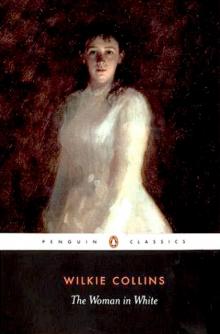 The Woman in White
The Woman in White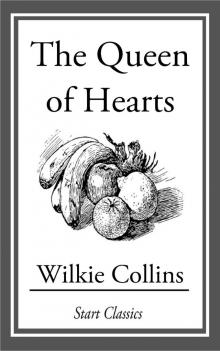 The Queen of Hearts
The Queen of Hearts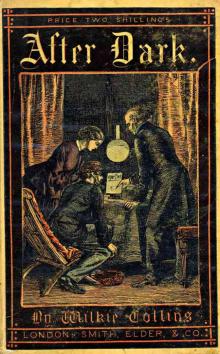 Miss Jeromette and the Clergyman
Miss Jeromette and the Clergyman Man and Wife
Man and Wife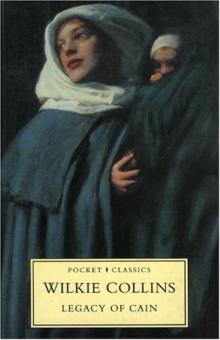 The Legacy of Cain
The Legacy of Cain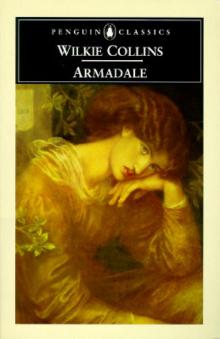 Armadale
Armadale The Frozen Deep
The Frozen Deep John Jago's Ghost or the Dead Alive
John Jago's Ghost or the Dead Alive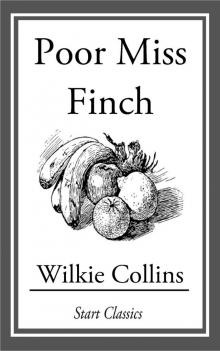 Poor Miss Finch
Poor Miss Finch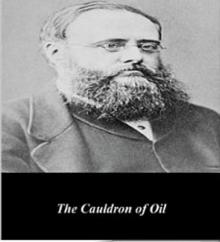 The Cauldron of Oil: A Case Worth Looking At
The Cauldron of Oil: A Case Worth Looking At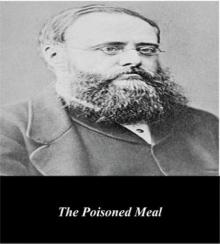 The Poisoned Meal
The Poisoned Meal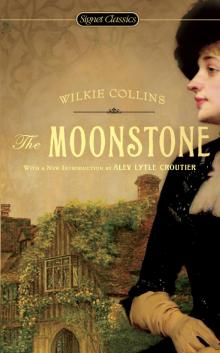 The Moonstone
The Moonstone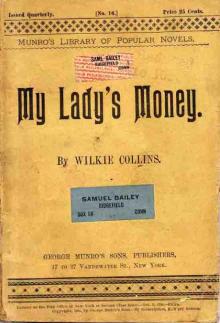 My Lady's Money
My Lady's Money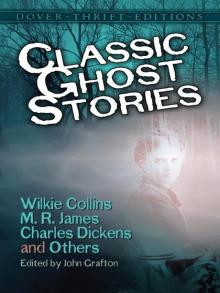 Classic Ghost Stories
Classic Ghost Stories Jezebel's Daughter
Jezebel's Daughter The Devil's Spectacles
The Devil's Spectacles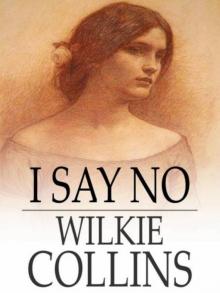 I Say No
I Say No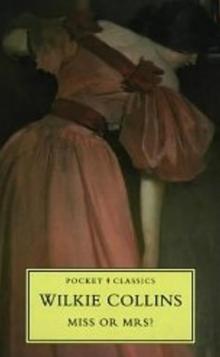 Miss or Mrs.?
Miss or Mrs.?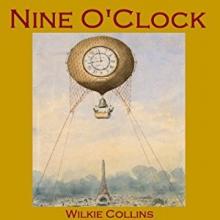 Nine O'Clock
Nine O'Clock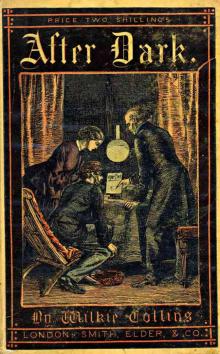 The Lawyer's Story of a Stolen Letter
The Lawyer's Story of a Stolen Letter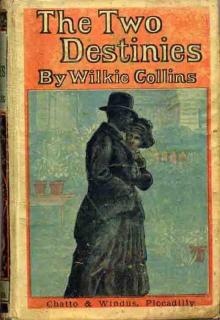 The Two Destinies
The Two Destinies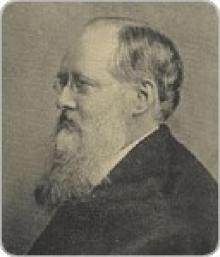 Mr. Percy and the Prophet
Mr. Percy and the Prophet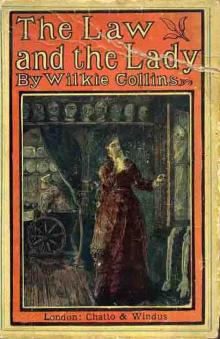 The Law and the Lady
The Law and the Lady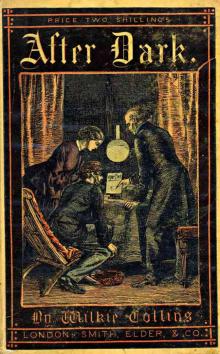 The Nun's Story of Gabriel's Marriage
The Nun's Story of Gabriel's Marriage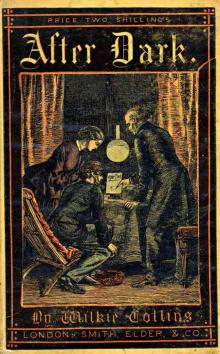 After Dark
After Dark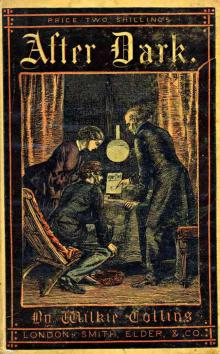 Mr. Captain and the Nymph
Mr. Captain and the Nymph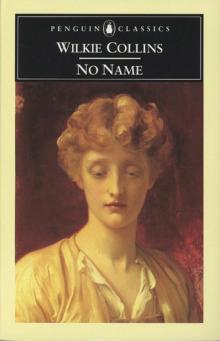 No Name
No Name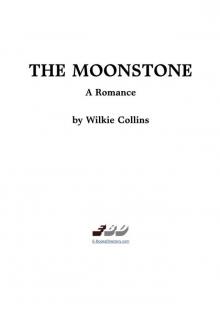 The Moonstone (Penguin Classics)
The Moonstone (Penguin Classics) Antonina
Antonina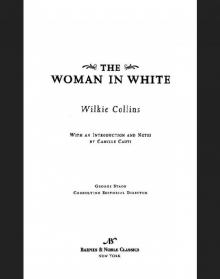 Woman in White (Barnes & Noble Classics Series)
Woman in White (Barnes & Noble Classics Series)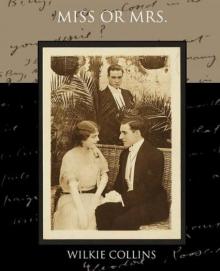 Miss or Mrs
Miss or Mrs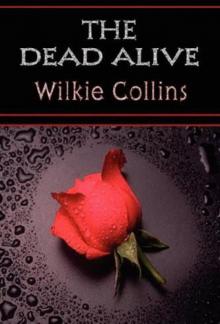 The Dead Alive
The Dead Alive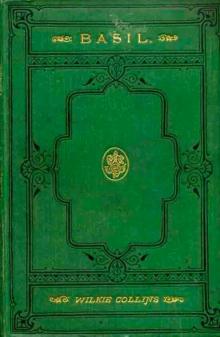 Basil
Basil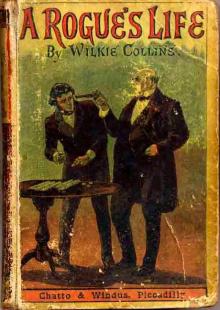 A Rogue's Life
A Rogue's Life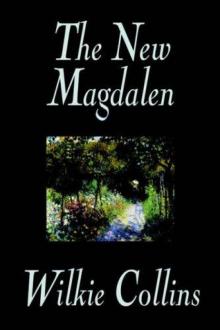 The New Magdalen
The New Magdalen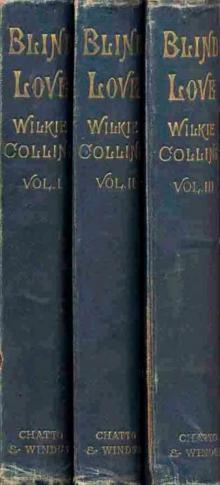 Blind Love
Blind Love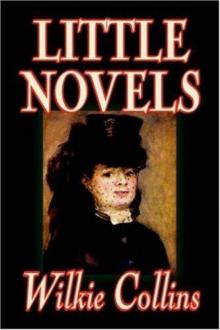 Little Novels
Little Novels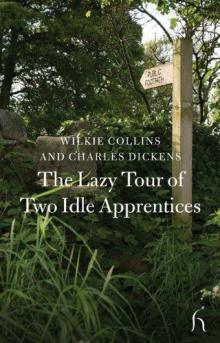 The Lazy Tour of Two Idle Apprentices
The Lazy Tour of Two Idle Apprentices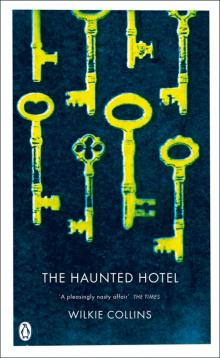 The Haunted Hotel
The Haunted Hotel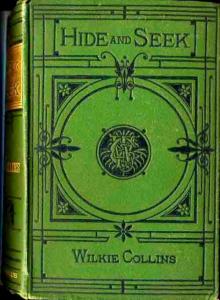 Hide and Seek
Hide and Seek